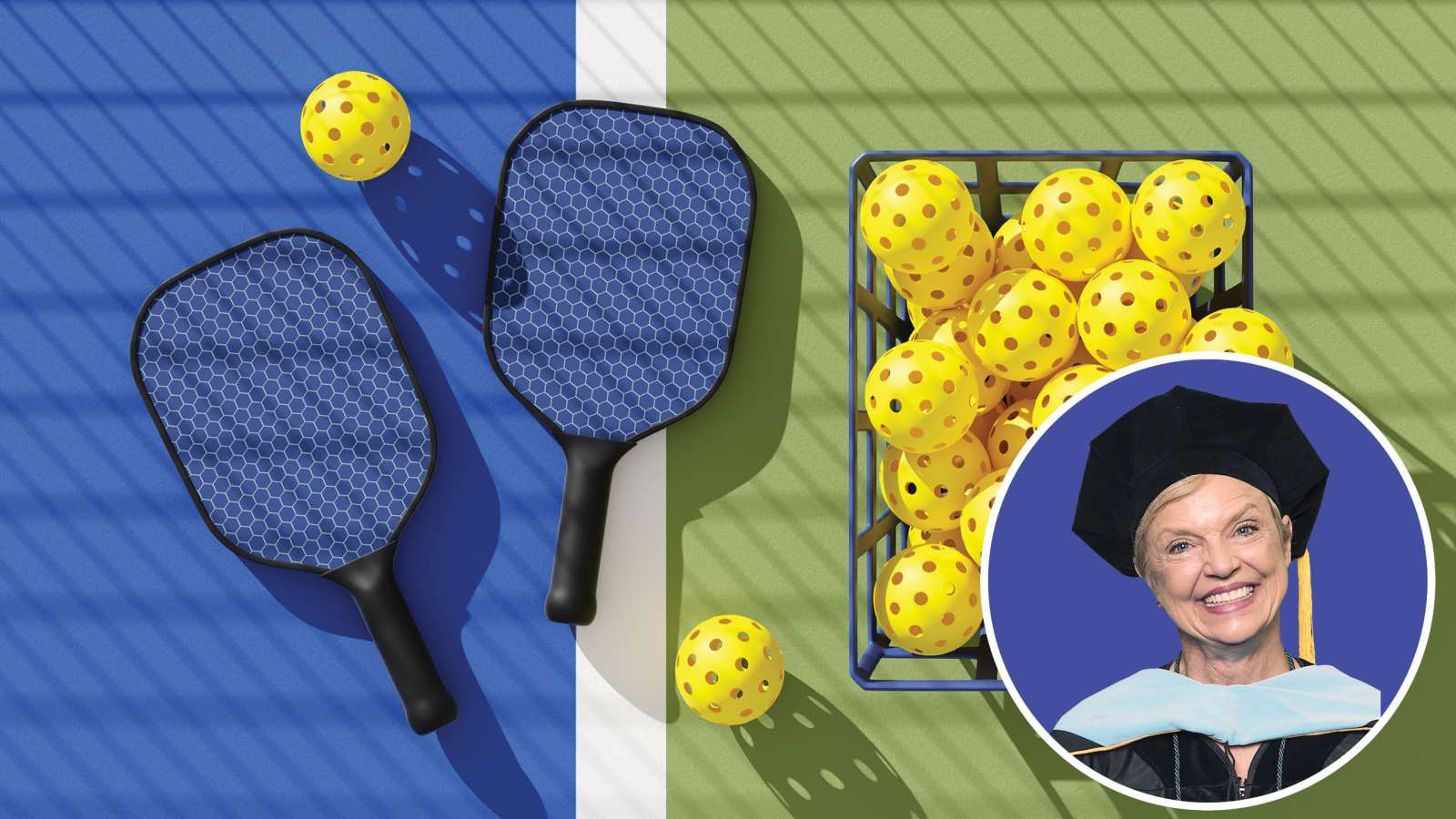Pickleball has hordes of people picking up paddles. Why? Ask Glynis Worthington.
In 2017, Worthington — the devoted wife of a fellow Iowa Stater and loving mother to four grown children — was thinking, “What next?” A runner in the Iowa Senior Games, she thought of training seniors at her local rec center. Management had hesitations, with a lack of senior program federal funding topping the chart.
“I asked, ‘How do you get funding?’ and was told, ‘You can’t, without science,’” she recalls.
So, Worthington got science. By 2018, she had enrolled at the University of Northern Iowa. Spotting more action on the court than on the track, she started observing pickleball games. What Worthington saw would become the foundation of her dissertation: flow theory, the reason for pickleball’s addictive qualities.
Honing in on doubles players ages 50+, Worthington explored the presence of flow and how playing with strangers enhanced this experience — even a side effect she calls the “Playground Effect.” It’s similar to the feeling young children experience when let loose at recess on the first day of school. “There’s no who’s who or social structure. You just have a wonderful time,” Worthington says.
The drive to understand pickleball was also personal. Worthington’s father — an Iowa State veterinary medicine graduate who loved rigorous activity — struggled to find meaning in retirement. Studying pickleball, Worthington was uncovering a key to a better quality of life.
“My goal is to represent exercise as possibly the greatest ‘medicine’ — the greatest thing we can do for ourselves in these age categories,” she says.
This year, Worthington — now age 61 — earned her EdD and became Dr. Glynis, pickleball scientist. She isn’t a pickleball player herself, maintaining a distance she feels is crucial to her studies, however, she preaches the positive effects of picking up a paddle. After all, she’s now the “doctor of pickleball.”
“Deciding to play may be the greatest healthcare decision you make for yourself later in life,” she says. “The more, the better.”

